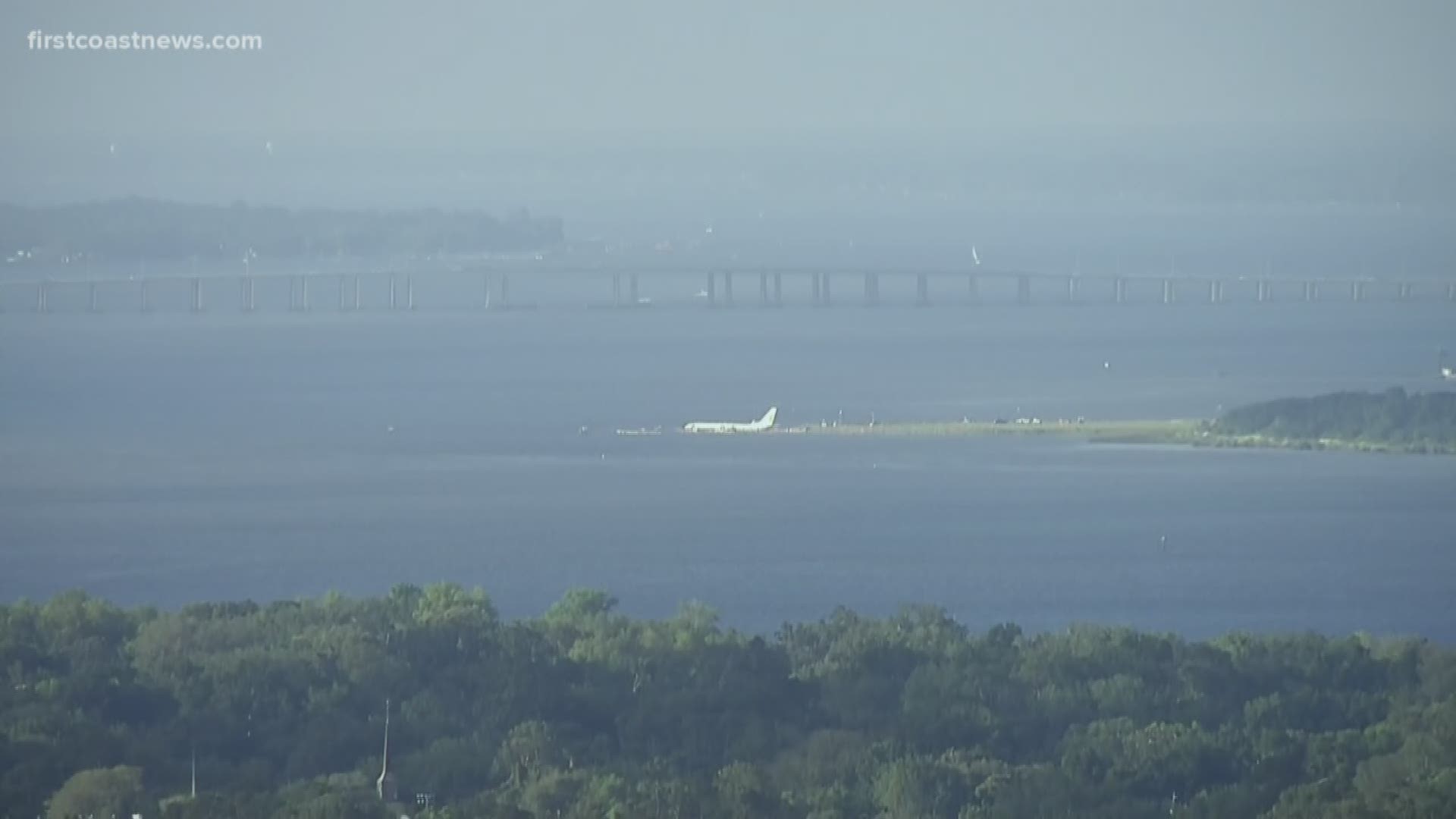An unknown amount of jet fuel is leaking into the St. Johns River from a Boeing 737-800 charter passenger plane that skidded off the runway Friday night at Naval Air Station Jacksonville resulting in minor injuries to 21 of the 143 passengers and crew on board.
The aircraft operated by Miami Air International — chartered by the U.S. Department of Defense — was ferrying military personnel, families, a few pets and cargo from Naval Station Guantanamo Bay, Cuba and Naval Air Station Jacksonville then onto Naval Station Norfolk.
The plane came to rest in shallow water after sliding off the rain-slicked runway about 9:40 p.m. Friday as thunderstorms passed over the area.
“I’m just so happy the crash wasn’t worse,” St. Johns Riverkeeper Lisa Rinaman said Saturday.
Rinaman said members of the nonprofit’s river patrol took a boat out Saturday morning to investigate. They didn’t see any visual signs of oil slicks or lost fuel near the crash site. But there was a strong stench, she said.
“They could smell it. There was a strong gasoline smell,” Rinaman said. They plan to reinspect the area in the afternoon, she said.
Rinaman said U.S. Coast Guard and city of Jacksonville sources have told her the leak has been contained to the immediate area around the downed aircraft, and that recovery efforts are underway.
So far, they’ve not heard of any fish kills or other impact on marine or wildlife due to the leak, she said.
“It’s always a possibility,” she said. “Once we know the volume that was lost that will give us more indication of what the risk may be.”
It’s unclear what environmental damage might already have been done.
Rinaman said she hasn’t heard how much fuel remains onboard, what has been lost in the water and how much fuel might be in the river outside the containment booms.
“Any pollution in the river gives us concern. You have concerns with the acute toxicity to any marine life that comes in contact with spilled fuel,” Rinaman said. “Then also you have potential long-term impacts to habitat.”

